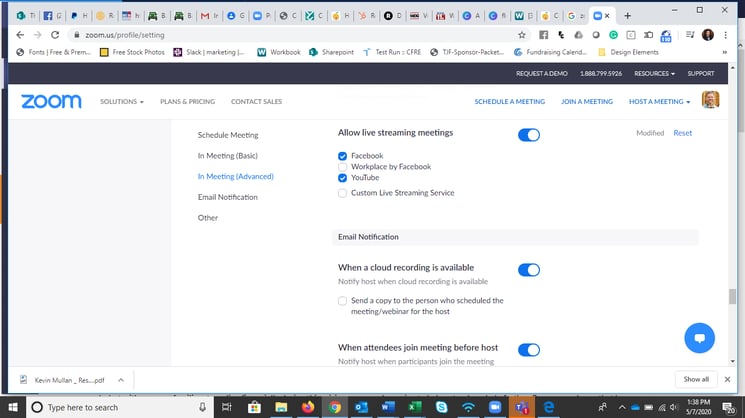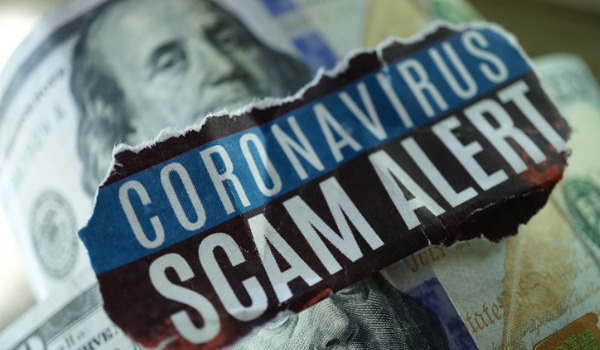If you haven’t heard of the term “Zoom Bombing,” consider yourself lucky. If you’ve experienced it yourself, I’m sorry. Either way, consider yourself warned. It’s happening and will likely continue to plague our new virtual meeting world.


If you haven’t heard of the term “Zoom Bombing,” consider yourself lucky. If you’ve experienced it yourself, I’m sorry. Either way, consider yourself warned. It’s happening and will likely continue to plague our new virtual meeting world.

Sharing client insights on timely topics – such as consumer fraud due to Coronavirus outbreak – is a public service.

|
||||||||||||||||||||||||
|
It is important to have a developed plan in place before a crisis appears. When in the middle of a crisis event it is easy to be overwhelmed with stress, which may cause tunnel-vision for some and emotional, not strategic thinking. Having a plan in place in advance will allow your team to focus on strategy and rapid execution of crisis management procedures.
We know that many of our clients and friends are dealing with or anticipating potential crises. We've also developed a Thread Marketing Group Orange Paper on the ABC's of Crisis Communications with additional information for handling a crisis. This helpful document is available for download via the link below. |
||||||||||||||||||||||||


You may have already had the “Cut Back” not “Cut Off” conversation regarding marketing. Assuming it went well and your company has not decided to go completely dark during this unprecedented downturn, you may be considering “What next?” How do I best determine what to cut back on, what to completely stop, and where to pivot budget into? Let Value be your guide.

This unprecedented pandemic is a wake-up call for companies to carefully review the strategies, policies, and procedures in place to protect employees, customers, and operations. An important part of those policies and procedures includes how you communicate, both internally and externally.

Sometime in your life, you’ve probably heard the old canard that the Chinese symbol for crisis is a combination of the symbols for danger and opportunity. 
It turns out to be one of those things that isn’t true but should be.
That’s because too many leaders have a one-sided view of a crisis. You can tell by the kind of language that’s used. Leaders want to:
While those things are certainly important, at Thread we think they lead to companies and nonprofits thinking defensively during crisis planning.

Our counsel is to remember that there truly are two sides to a crisis situation in our times, if not in ancient Chinese typology. Beyond merely avoiding damage to a brand, we believe that a well-handled crisis can actually increase the trust a brand has and improve it’s overall reputation. Further, that philosophy should be baked into every part of the planning process.
My favorite example came when I was working for a local retail business with a high profile in our region. One of the company’s employees had been caught fraudulently providing an add-on service to customer’s orders. He was due to be charged by the County Prosecutor following a thorough investigation.
By traditional measures, there was no reason for my client to be damaged. An employee was cheating the company as well as the customers. The company had discovered it, reported it to authorities and cooperated with the investigation. As long as we told that story, things were likely to be fine.
Even so. our counsel was to think bigger. As with any situation, you want to tell your own bad news and not leave the key details in the hands of others, if at all possible. Our recommendation was to mail a letter to every customer, self-report what had happened, take responsibility and then offer a small gift to compensate. Timing was key: the letter had to hit between the time when the employee was notified of his indictment but before the media found out. What we told the client:
“If we do that, your trust will not just be protected. People will trust you more.”
We executed that plan and were pleased with the results. Because we told the story and told it first, we were credited by consumers for having nothing to hide. We weren’t concerned about a lurid headline sidetracking public opinion. And we had done the right thing—all the way down the line—and people were going to see it.
The feedback to the company was excellent. Numerous people said that they believed more in our client than they had before. Just as important was what didn’t happen: customers who walked in the door didn’t mention the story…customers didn’t leave…and business didn’t take a hit.
Not all crisis situations are as well set up as this one. In some cases, the company or non-profit might be more culpable than my client was in this case. I’d argue that even if that was the case, a company that makes a mistake and owns up to it and offers to make it good is well positioned to realize a long-term gain in public reputation. People understand that mistakes are made—what they don’t tolerate is spin, evading responsibility, or callous behavior.
If you’re interested in seeing how we create crisis plans that seek benefit as well as damage mitigation, let us know.